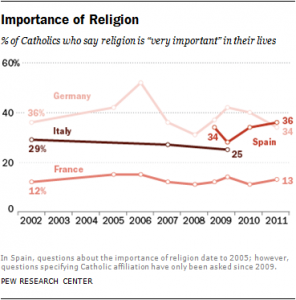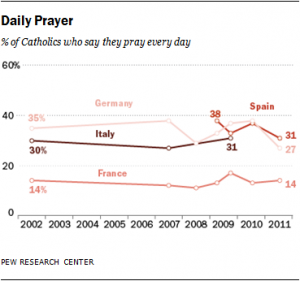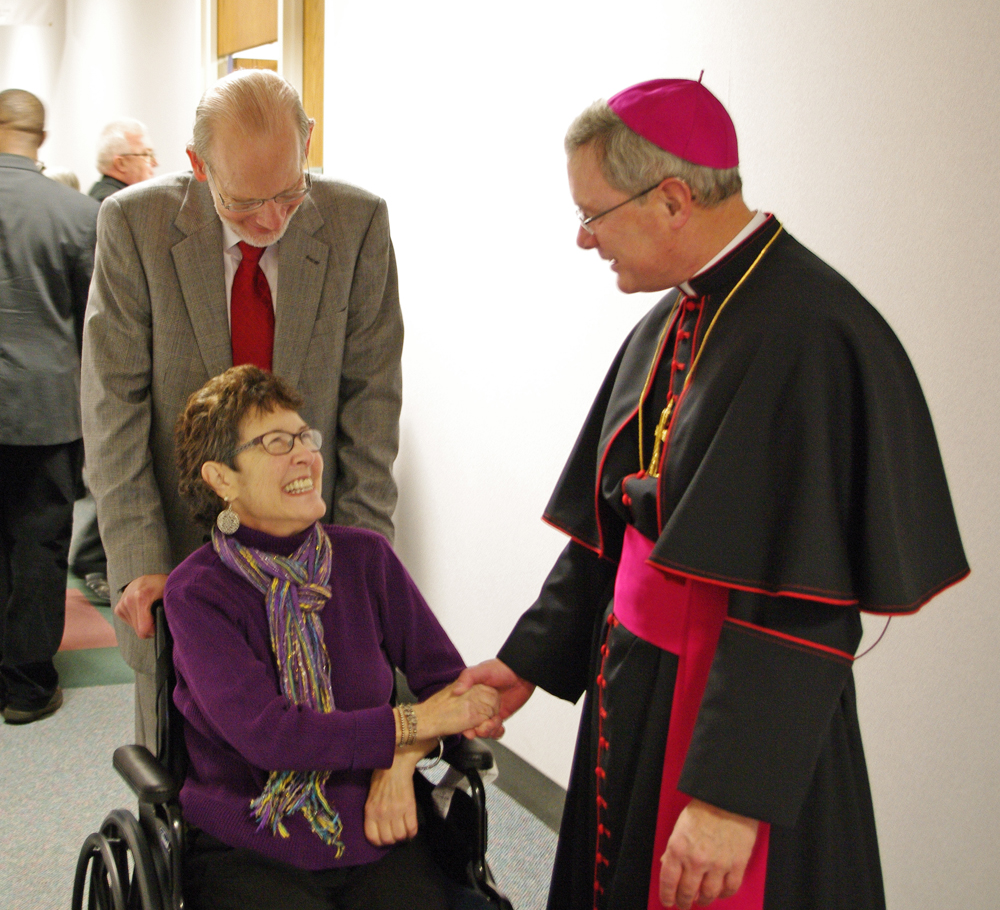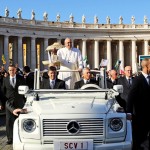 One of the central legacies of Pope Emeritus Benedict XVI’s papacy has been his proactive response to global secularization, especially to decades of decline in religious observance among Europeans. Taking up John Paul II’s call for the New Evangelization, Pope Benedict XVI called for a fresh sharing of the Gospel in “those regions awaiting the first evangelization and to those regions where the roots of Christianity are deep but who have experienced a serious crisis of faith due to secularization.” But unlike some philosophies of evangelization, a central tenet of his teaching has been that the centrality of prayer in this mission. Benedict XVI understands prayer as holding a two-fold significance in evangelization. First, those sharing the faith must first be re-evangelized themselves, growing in habits of prayer and contemplation amidst life’s busyness; and likewise, among those with whom they share the faith, prayer constitutes a deeply personal and essential means by which one encounters God. Benedict XVI writes, “Praying actualizes and deepens our communion with God. Our prayer can and should arise above all from our heart, from our needs, our hopes, our joys, our sufferings, from our shame over sin, from our gratitude from the good. It can and should be a wholly personal prayer.
One of the central legacies of Pope Emeritus Benedict XVI’s papacy has been his proactive response to global secularization, especially to decades of decline in religious observance among Europeans. Taking up John Paul II’s call for the New Evangelization, Pope Benedict XVI called for a fresh sharing of the Gospel in “those regions awaiting the first evangelization and to those regions where the roots of Christianity are deep but who have experienced a serious crisis of faith due to secularization.” But unlike some philosophies of evangelization, a central tenet of his teaching has been that the centrality of prayer in this mission. Benedict XVI understands prayer as holding a two-fold significance in evangelization. First, those sharing the faith must first be re-evangelized themselves, growing in habits of prayer and contemplation amidst life’s busyness; and likewise, among those with whom they share the faith, prayer constitutes a deeply personal and essential means by which one encounters God. Benedict XVI writes, “Praying actualizes and deepens our communion with God. Our prayer can and should arise above all from our heart, from our needs, our hopes, our joys, our sufferings, from our shame over sin, from our gratitude from the good. It can and should be a wholly personal prayer.
The Pew Forum recently highlighted research on the status of today’s European Catholics, including their opinion of the Catholic Church and of religion in general, their Mass attendance, etc. An interesting area of their research included the role of prayer in the life of European Catholics. Notably, the research showed that few European Catholics said they engaged in prayer at least once a day. Results differed significantly among Western European
 countries. German and Spanish Catholics pray more than French Catholics, for example, who are least likely among the countries polled to engage in daily prayer (between 11% and 17% reported daily prayer). Yet among German and Spanish Catholics, only four-in-ten said they engage in daily prayer. Slightly less, about three-in-ten, Italian Catholics said they pray daily in recent polls.
countries. German and Spanish Catholics pray more than French Catholics, for example, who are least likely among the countries polled to engage in daily prayer (between 11% and 17% reported daily prayer). Yet among German and Spanish Catholics, only four-in-ten said they engage in daily prayer. Slightly less, about three-in-ten, Italian Catholics said they pray daily in recent polls.
The role of prayer in the New Evangelization (NE) is clearly central for the Pope Emeritus. Perhaps future, more in-depth research on the prayer lives of European Catholics would be a useful means of measuring the effectiveness of its there. But with daily prayer so little a part of the lives of today’s European Catholics, the NE has a long road ahead…



 countries. German and Spanish Catholics pray more than French Catholics, for example, who are least likely among the countries polled to engage in daily prayer (between 11% and 17% reported daily prayer). Yet among German and Spanish Catholics, only four-in-ten said they engage in daily prayer. Slightly less, about three-in-ten, Italian Catholics said they pray daily in recent polls.
countries. German and Spanish Catholics pray more than French Catholics, for example, who are least likely among the countries polled to engage in daily prayer (between 11% and 17% reported daily prayer). Yet among German and Spanish Catholics, only four-in-ten said they engage in daily prayer. Slightly less, about three-in-ten, Italian Catholics said they pray daily in recent polls.